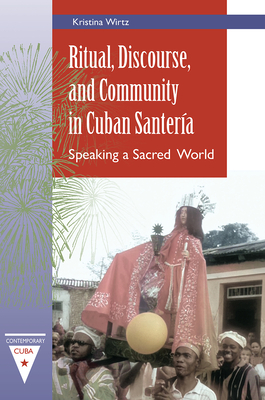Ritual, Discourse, and Community in Cuban Santería: Speaking a Sacred World

Ritual, Discourse, and Community in Cuban Santería: Speaking a Sacred World
An insightful ethnographic account of the lives of Santería practitioners in Cuba
How do Santería practitioners in Cuba create and maintain religious communities amidst tensions, disagreements, and competition among them, and in the absence of centralized institutional authority? What serves as the "glue" that holds practitioners of different backgrounds together in the creation of a moral community? Examining the religious lives of santeros in Santiago de Cuba, Wirtz argues that these communities hold together not because members agree on their interpretations of rituals but because they often disagree.
PRP: 260.40 Lei
Acesta este Prețul Recomandat de Producător. Prețul de vânzare al produsului este afișat mai jos.
234.36Lei
234.36Lei
260.40 LeiIndisponibil
Descrierea produsului
An insightful ethnographic account of the lives of Santería practitioners in Cuba
How do Santería practitioners in Cuba create and maintain religious communities amidst tensions, disagreements, and competition among them, and in the absence of centralized institutional authority? What serves as the "glue" that holds practitioners of different backgrounds together in the creation of a moral community? Examining the religious lives of santeros in Santiago de Cuba, Wirtz argues that these communities hold together not because members agree on their interpretations of rituals but because they often disagree.
Detaliile produsului









